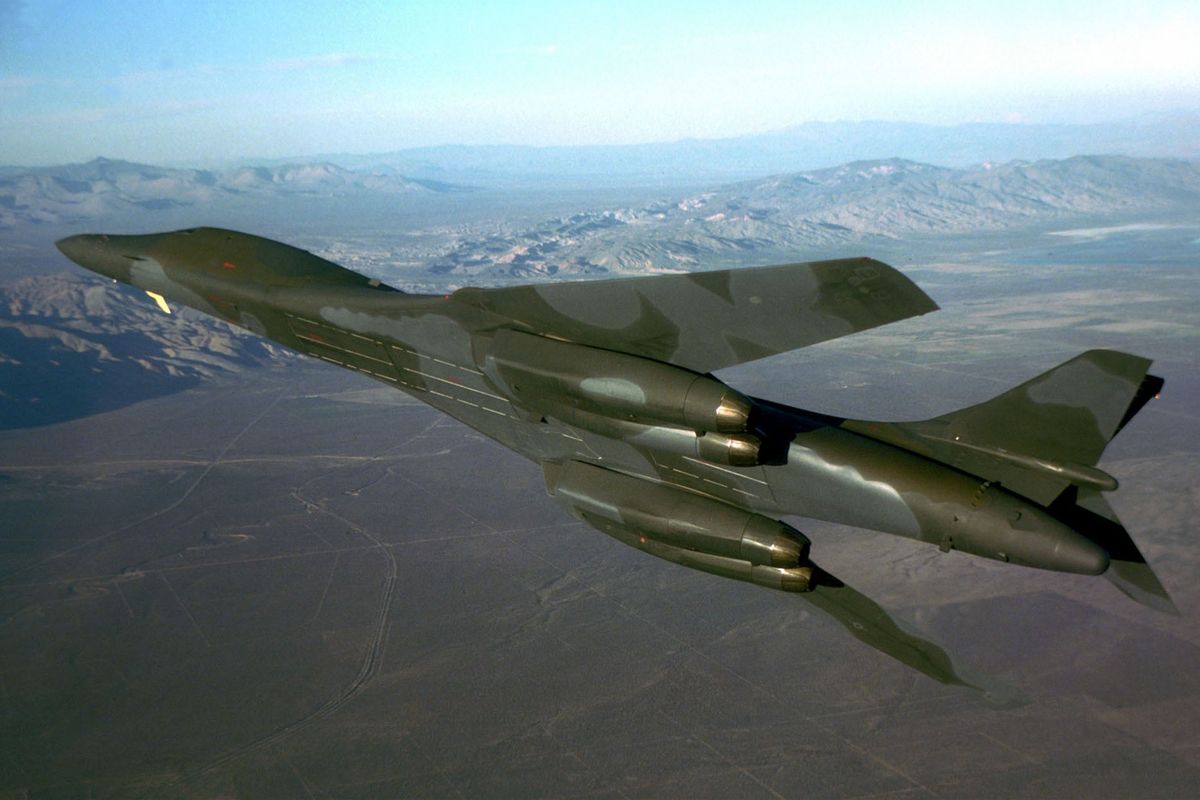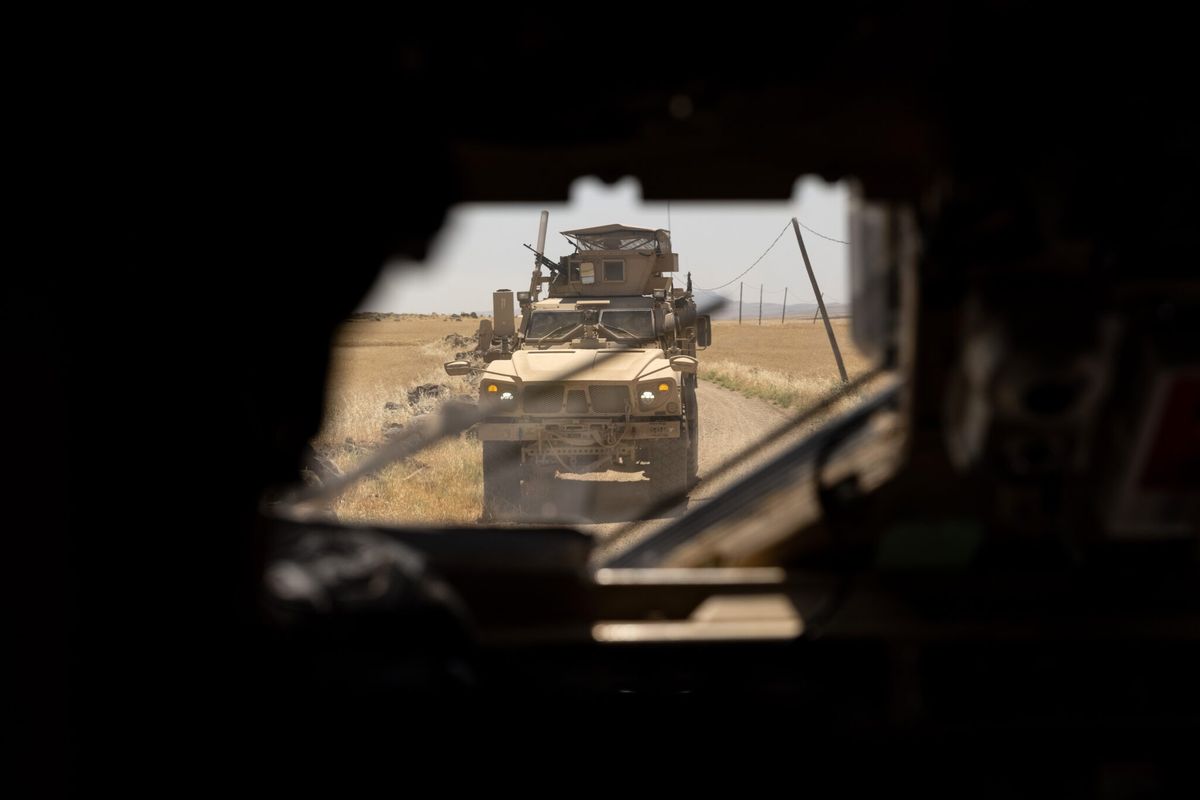The framework for a political settlement in Syria, recently negotiated by the United States, Russia, Iran, and regional players in Vienna, is superficially impressive. It calls for a ceasefire, the establishment of a transitional government in six months, and new elections in 18 months. It does not specify which members of the Syrian armed and political opposition can participate in the process, however, or offer much incentive to make the most powerful groups want to do so. That is the main reason why it will fail to end the Syrian Civil War.
The idea that international actors, all of which support local armed proxies but none of which have decisive military forces of their own on the ground, can impose a settlement on powerful warring groups without involving them in the discussion is baffling. Yet that is what this framework agreement proposes to do. It requires the external parties to agree on which members of the Syrian opposition – both armed and political—may participate. But the framework itself does not list mutually acceptable opposition groups precisely because the parties do not agree on such a list. The groups fortunate enough (or neutral enough) to gain the approval of the U.S., Russia, and Iran will certainly exclude many of the most powerful factions on the ground.
A “political solution” in Syria—or any war—is meaningless unless the armed forces fighting accept it. The international community persists in treating the Syrian political opposition as an effective interlocutor for the armed opposition despite ample evidence to the contrary. The current negotiations seem likely to fall into this failed pattern by engaging Syrian groups on the basis of their willingness to talk rather than their power on the ground. Most armed opposition groups have refused since 2012 to join formal negotiations to end the war unless Assad’s departure from power is guaranteed before the talks start. The Vienna Framework attempts to finesse this problem by adopting a Russian proposal for transition based on promised elections in 2018. The armed opposition groups will likely continue to refuse any such terms and for good reason—Assad has already been “re-elected” once during this war. He “won” sham elections in June 2014, less than a year after employing chemical weapons against his own population in his capital. The physical destruction of Syria, the millions of refugees and internally displaced people, and control of cities by various armed groups preclude the conduct of free and fair elections quickly in any event. There is no reason to imagine that Assad would not run again and “win” again in 2017, and even less reason for the armed opposition to trust the outcome.
If Assad, or a loyal crony, should win the election in 2018, the result would be worse than the collapse of the current process. The Assad regime is a primary recruiting tool for both Syrian al-Qaeda affiliate Jabhat al-Nusra and ISIS. Both of these groups position themselves as the defenders of Syrian Sunnis against Assad and the Western powers they claim are backing him. U.S. support for a sham electoral process will strengthen Jabhat al-Nusra even more by enhancing its narrative, widely-held on the ground, that the U.S. has abandoned Syria to Iran and Russia or even thrown in with the supporters of the ‘Alawite dictators. Russia’s intervention on behalf of the Syrian regime is strengthening that claim and thus, Jabhat al-Nusra. Jabhat al-Nusra absorbed three independent foreign fighter groups after the start of Russian military operations in Syria and may have started absorbing less hardline Islamist fighters who are starting to believe that the global jihadis are the only ones who will fight with them against Assad. The promise of “free and fair elections” in 2017 is a dangerous chimera. It is a trap that Washington must avoid.
U.S. support for moderate Syrian rebels is woefully insufficient to contain Jabhat al-Nusra’s growing influence, particularly in this scenario. American TOW missiles and other asymmetric capabilities offer some incentive for groups to remain independent from Jabhat al-Nusra in the near term. But restrictions on the U.S. support program guarantee that such groups will remain only a small subset of the opposition. Accepting a political deal in which Assad remains or is replaced by a close alternative could alienate even the groups that do make the cut, further radicalizing the opposition. Assad and his allies in Tehran and Moscow have long maintained the false narrative that terrorists fully control the Syrian armed opposition in order to legitimize their war against them. The Vienna Framework may make these lies into truth.
Moreover, any efforts to defeat ISIS in such a scenario will fail. Enduring success against ISIS requires a holding force accepted by the Sunni majority currently living under ISIS rule. Much of the civilian population in ISIS-held terrain likely opposes ISIS, at least ideologically. This population remains even more committedly anti-Assad, however. ISIS is a brutal oppressor, but Assad seems to many of Syria’s Sunni Arabs as a truly existential threat. A bad political settlement in Syria could therefore facilitate ISIS recruitment, even among reluctant populations. More dangerous still, ISIS could join Jabhat al-Nusra and Syrian rebels in a war against the newly legitimized Assad regime with this newfound local support. Jabhat al-Nusra and ISIS are at odds in Syria, but both Jabhat al-Nusra and Syrian rebels likely view ISIS activity against the Syrian regime as positive. Over time, this could produce a unity of effort with disastrous consequences for the anti-ISIS effort.
Adjusting The Vienna Framework to include the removal of Assad and his regime as a precondition—which would be a complete non-starter for both Iran and Russia—would still be insufficient to create a viable political process to resolve this conflict, however. Some armed opposition groups would refuse to participate in negotiations even if Assad left office immediately. The fragmentation of the armed opposition since 2013 has increased the number of stakeholders, so more rebel leaders must now agree to stop fighting than ever before. This fragmentation has also allowed Jabhat al-Nusra to become a primary powerbroker in much of rebel-held Syria. Jabhat al-Nusra is irreconcilable, is intertwined with most Syrian rebel groups, and will attempt to spoil any negotiations. It will prevent the emergence of a meaningful diplomatic process as long as it retains its influence.
The parties in Vienna on November 14 reportedly agreed to add Jabhat al-Nusra to the list of terrorists in Syria alongside ISIS, meaning that Jabhat al-Nusra can still be targeted even under the proposed ceasefire. This is an important recognition but is unlikely to change much in practice. The West will find it difficult to attack Jabhat al-Nusra targets without also hitting the non-Jabhat al-Nusra groups that must be peeled away from the al-Qaeda affiliate, while Russia, Iran, and Assad will continue to attack all opposition groups indiscriminately by accusing them of being Jabhat al-Nusra or ISIS.
The West must accept some realities in Syria. There can be no place for Assad or his cronies in Syria’s future, yet their departure in itself will not be enough to end the war. It would at most create the opportunity to engage armed opposition groups in negotiations with a successor regime. Any plan for transition must account for the likelihood that Jabhat al-Nusra will lead a continued insurgency against any transitional government, moreover, possibly even in cooperation with ISIS. Syrian armed opposition groups will factor this into their calculus at the negotiating table, and so must the West. The international community must incentivize Syrian armed opposition groups to come to the negotiating table at Jabhat al-Nusra’s expense, and despite its threats, if there is to be any hope of a peaceful resolution to this horrible war.
The Vienna Framework is a premature undertaking. Conditions on the ground do not yet support a negotiated resolution to this apocalyptic conflict. The U.S. should always pursue options that halt as much of the violence as possible in order to save civilian life and enable other Sunni groups to compete for hearts and minds in Syria, as long as these options do not compromise the prospects for a permanent solution or our vital national security interests. The U.S. should not, however, accept efforts to impose a transitional government according to an arbitrary timetable. America and its allies must set conditions to maximize the likelihood of success in negotiations, paramount among which is containing and degrading Jabhat al-Nusra’s influence in rebel-held Syria, as well as the military power of ISIS. The diplomatic track must be a partner and beneficiary of a sound military effort. It cannot be a substitute.
Jennifer Cafarella is the Evans Hanson Fellow and a Syria Research Analyst at the Institute for the Study of War. She focuses on Syria, the Syrian civil war and opposition groups, as well as the activities of the Islamic State of Iraq and al-Sham (ISIS). At ISW, she has written on ISIS in both Syria and Iraq, tracking their efforts to consolidate power in eastern Syria, while at the same time connecting their Syrian-Iraqi northern fronts. In addition, she has written on and researched various opposition groups in Syria, particularly focusing on the al-Qaeda affiliate Jabhat al-Nusra and their military capabilities, modes of governance, and long-term strategic vision.













